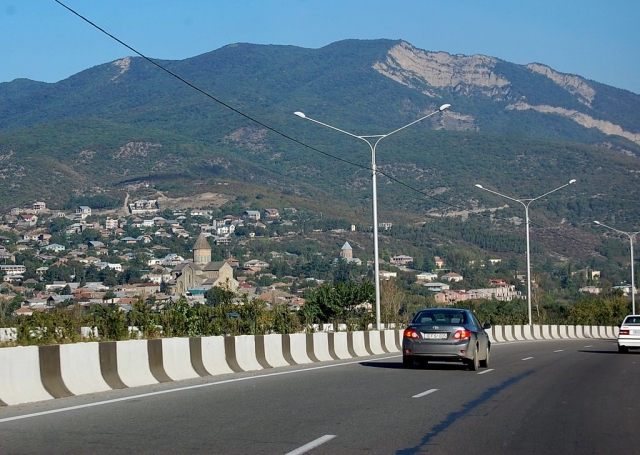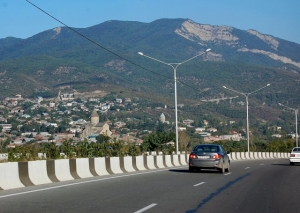World Bank Injects $140 Million into Main Highway Upgrade
The World Bank has allocated $140 million to upgrading Georgia’s main highway, connecting the eastern and western parts of the country.
The World Bank Board of Executive Directors today approved a $140 million equivalent financing for the Fifth East-West Highway Corridor Improvement Project (EWHCIP) for Georgia.
The World Bank Senior Transport Specialist and the Task Team Leader for the project, Mustapha Benmaamar, highlighted that the project will bring the East-West Highway up to European design standards and improve the level of service through the provision of key Intelligent Transport System (ITS) activities.
The project’s development objectives are to reduce road user costs along the Corridor section upgraded under the project, and to strengthen the capacity of the Roads Department under the Ministry of Regional Development and Infrastructure and the Ministry of Economy and Sustainable Development. The project will also help manage the road network and provide an environment to improve logistics services.
“The completion of the East-West Highway Corridoe is a central piece in the Government’s strategy of transforming Georgia into a regional transport and logistics hub. The Project will directly contribute to economic development by reducing transportation costs and linking rural communities and their agricultural products to urban centers such as Tblisi,” Mercy Tembon, World bank Regional Director for the South Caucasus stated.
According to Tembon, once the project is completed, the East-West Highway from Tbilisi to Batumi via Poti will provide direct road access to 2.2 million people, more than half the total population of Georgia.
The project will provide a safe and smooth road to travel along for Georgian commuters. Through the project road users will benefit from better road quality and level of service, better road safety through new alignments and the Khashuri bypass, which allows users to avoid hazardously crossing urban areas with heavy traffic, and savings derived from the reduced transport cost.
The project is in line with the strategic directions identified in the current 2014-2017 Country Partnership Strategy (CPS).
The CPS identified two strategic pillars strengthening public service delivery to promote inclusive growth and enabling private sector led job creation through improved competitiveness.
Photo by toreli.












